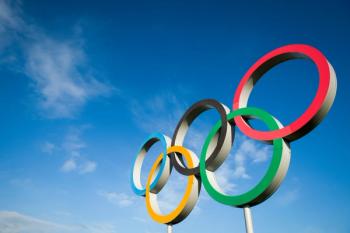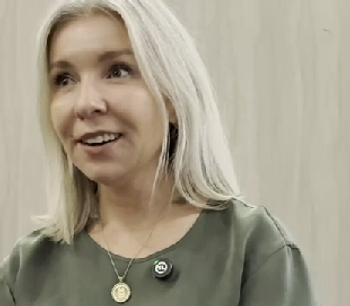
From Victory to Vulnerability: Black Athlete Moms on Maternal Health Risks Through Delivery and Beyond
Key Takeaways
- Black maternal health disparities are highlighted, with elite athletes sharing personal experiences of systemic gaps in care.
- Maternal mortality rates show significant racial disparities, with Black women facing high risks compared to other groups.
Dr Wilsa Charles Malveaux highlights the urgent need to address mental health in Black Maternal Health Week, especially for Black mothers and athletes.
SPORTS & PSYCHIATRY
Although many challenges of motherhood in athletics (eg, physical recovery, identity shifts) are shared across backgrounds, the devastating statistics overwhelmingly impact Black women.
The voices of Black athlete mothers illustrate the systemic gaps persist and why maternal mental and physical health deserve urgent attention through delivery and beyond. These reflections come from a variety of sports—from track and tennis to soccer and basketball—and reveal common struggles that extend far beyond the delivery room. Their words, alongside key public health data, underscore the urgent and ongoing need for greater support, advocacy, and systemic change.
Serena Williams (Tennis)2
“While I had a pretty easy pregnancy, my daughter was born by emergency C-section after her heart rate dropped dramatically during contractions … what followed just 24 hours after giving birth were six days of uncertainty. It began with a pulmonary embolism…”
“This sparked a slew of health complications that I am lucky to have survived.”
“I am so grateful I had access to such an incredible medical team of doctors and nurses at a hospital with state-of-the-art equipment. They knew exactly how to handle this complicated turn of events. If it weren’t for their professional care, I wouldn’t be here today.”
Allyson Felix (Track & Field)3
“I’m an athlete. I take great care of my body and was in great health. I had a birthing plan. I was at one of the best hospitals in the country. There was no way anything could go wrong, right?...But my eyes were completely opened to the fact that no one is immune from this reality and that Black women face significantly higher risks—ones I wasn’t really aware of and looking for.”
Nia Ali (Track & Field)4
“I know it means so much more now, because I see people who reach out to me about being inspired and motivated – moms from all walks of life … That’s really what motivates me the most – that’s why I do it. Not just for the athlete who is trying to come back, but the everyday mom who is just trying to get herself through postpartum and get to work. “
Sanya Richards-Ross (Track & Field)5
“The hardest part of mothering has been the ‘mommy guilt’ I feel when I have to leave for work … I know it’s important for me to continue doing the things I love to do, and one day it will set a great example for my son but it doesn’t make it any easier. I hate missing even the smallest of milestones.”
Sydney Leroux (Soccer)6,7
"I truly wish I could be one of those pregnant women who wake up every day happy, and feeling that 'pregnancy glow' but I don't always feel that way. Most of the time I'm just in pain. My stomach feels like something is stabbing me from the inside and my hips feel like someone is ripping off my legs.”
"I feel like when you're pregnant you have to put on this smile even when you don't want to. Sometimes when people ask me how I'm feeling I wish I could just be honest and tell them this is the hardest thing I've ever had to do. That it's tough."
Years later, her reflections shifted from pregnancy to the ongoing demands of raising multiple children while competing.
"This is one of the hardest things I've ever had to say or admit to myself. But after a lot of reflection, I've made the difficult decision to step away from soccer for my mental health."
“Anyone who knows me knows I'm a fighter—I always have been. I take pride in showing up, in giving everything I have, but right now I owe it to myself and my children to take a step back and take care of me.”
Candace Parker (Basketball/WNBA)8
“You can have a family AND a career. Balancing both is quite a juggling act! At times I tiredly look into the mirror and ask myself, ‘What am I doing?’ But I am quickly reminded how much I love ‘this’ when I gaze over on the sideline during one of my games and see my whole entire world waving back. I smile when I see my husband whispering to my daughter, ‘You see Mommy?’”
Dominique Dawes (Gymnastics)9
“But when you’re a mom, you don’t have full control and you have to learn to let go. And that is very difficult for many gymnasts, because gymnasts tend to have a controlling nature and a level of perfectionism. We were always striving for that perfect 10."
“I’m not finding the time right now, nor the motivation, to get to the gym and do that 30 or 60 minute regimented workout. It really is about living life and being active with my kids and obviously making smart decisions when it comes to eating or snacking.”
Taylor Townsend (Tennis)10
“Being a mom and just honestly, the strength and resilience that I have that I draw from knowing that the experience that I’m having and that I’m living is not normal. And it’s something that takes so much strength. It takes so much strength to be able to leave your child for weeks and weeks and weeks at a time. So I draw from that. Being a mother to Adyn also has given me a large amount of accountability.”
“If you want to have a family, if that’s something that you want, it is so fulfilling because there is life outside of sport. There are times when our identities are so wrapped up in what we do, our wins and losses, that we can’t really differentiate external life from our sports life and from our careers.”
“We have so many different things, but this is another badge that we can do, and it’s not something in which it has to end our careers, but ultimately, in my case, it’s just gotten started.”
Skylar Diggins-Smith(Basketball/WNBA)11
“I lost 50 pounds…I was 204 pounds and I play at 145. I [couldn’t] move. I [couldn’t] run. I [couldn’t] walk.” “Going through postpartum stuff, you just never know where you’re going to be at ...”
Tianna Madison (Track & Field)12
“I was absolutely terrified … I knew about the statistics, going through school about the Black maternal mortality crisis … I also was like ‘oh no my body, my career it’s over…’”
“I want you to know that you can, and will, make it out of that hospital alive to raise your children because now you know what you need to know to make that happen…And that’s a start.”
Tori Bowie (Track & Field)13
Bowie, a 3-time Olympic medalist, was found dead when she 8 months pregnant. The autopsy report indicated possible labor complications, including respiratory distress and eclampsia. Her tragic death due to childbirth complications highlights the silent crisis of Black maternal mortality, even among elite athletes.
Perspectives
In addition to these personal testimonies, national data continue to expose the disparities that make maternal health outcomes particularly alarming for Black mothers in America. Maternal mortality rates reveal stark racial disparities (Figure). According to a recent study of maternal mortality rates between 2018-2022, “There was a nearly 5-fold difference in pregnancy-related mortality rates by racial and ethnic groups.”14 American Indian and Alaska Native women faced the highest rates, 106.3 deaths per 100,000 live births, with Black women facing the second highest risk, with 76.9 deaths per 100,000 live births. In comparison, White women experience 27.6 deaths, Latino or Hispanic women 25.9 deaths, and non-Hispanic Asian women 21.8 deaths per 100,000 live births. Although exact figures vary slightly across years, the overall ranking of risk remains consistent, underscoring the urgent need to address systemic inequities in maternal health care.
The physical risks of childbirth are only part of the story. For many athlete mothers—and Black mothers in particular—the emotional landscape in the months following delivery can be just as challenging. Anxiety, stress, and identity shifts often emerge alongside physical recovery, yet too often go unrecognized and untreated. Data show that Black women are more likely to have postpartum depression than White women, with one study noting an adjusted relative risk of 1.30 (95% CI, 1.24-1.37).15
As conversations around maternal health continue to evolve, it is critical to build tools and resources that help athletes and mothers name, understand, and address these psychological challenges. Recognizing the mental side of the journey is essential to ensuring that every mother, in every community, is truly supported beyond the delivery room.
Dr Wilsa Charles Malveaux is a sports psychiatrist in Los Angeles, California, and CEO of WCM Sports Psych. She is an advocate and educator on the intersection of mental health, sports, and racial and social justice. Dr Charles Malveaux lends her expertise as a psychiatric consultant to multiple national sport-related agencies, professional sports teams, and organizations. She served for over 4 years as the Western Regional Trustee (region 4) on the Board of Black Psychiatrists of America. Dr Charles Malveaux now serves on the Board of Directors for the American Board of Sports and Performance Psychiatry (ABSPP), as well as on advisory boards for organizations serving the community. She is the Sports Psychiatry Section Editor for Psychiatric Times.
References
1. Pregnancy-Related Deaths: Data From Maternal Mortality Review Committees in 38 U.S. States, 2020. Centers for Disease Control. May 28, 2024. Accessed April 15, 2025.
2. Williams S. Serena Williams: What my life-threatening experience taught me about giving birth. CNN. February 20, 2018. Accessed April 15, 2025.
3. Campoamor D. Olympic star Allyson Felix's traumatic birth experience turned her into an advocate. Today. August 4, 2020. Accessed April 15, 2025.
4. Whittington J. Hurdles champion Ali, more motivated than ever. World Athletics. June 22, 2022. Accessed April 15, 2025.
5. Chiu M. Sanya Richards-Ross Talks Mommy Guilt: 'I Hate Missing Even the Smallest of Milestones'. People. December 4, 2018. Accessed April 15, 2025.
6. Maine D. Sydney Leroux: Pregnancy is the hardest thing ever. ESPN. April 1, 2016. Accessed April 15, 2025.
7. Angel City's Sydney Leroux 'steps away from soccer over mental health'. ESPN. March 16, 2025. Accessed April 15, 2025.
8. McLellan S. WNBA star Candace Parker on the strong women who influenced her and the NBA Awards. ABC News. June 24, 2019. Accessed April 15, 2025.
9. Peters T. Dominique Dawes on why motherhood is harder than training for the Olympics. Today. July 20, 2016. Accessed April 15, 2025.
10.
11. Allen P. Skylar Diggins-Smith reflects on journey to Storm after Mercury exit. Seattle Times. June 15, 2024 Accessed April 15, 2025.
12. Woytach C. Olympic gold medalist, Elyria native Tianna Madison discusses Black maternal health crisis at countywide baby shower. The Chronicle. June 16, 2024. Accessed April 15, 2025.
13. Lynch J, Riess R. Olympic gold medalist Tori Bowie died from childbirth complications, autopsy finds. CNN. June 14, 2023. Accessed April 15, 2025.
14.Chen Y, Shiels MS, Uribe-Leitz T, et al.
15. Onyewuenyi TL, Peterman K, Zaritsky E, et al
Newsletter
Receive trusted psychiatric news, expert analysis, and clinical insights — subscribe today to support your practice and your patients.







